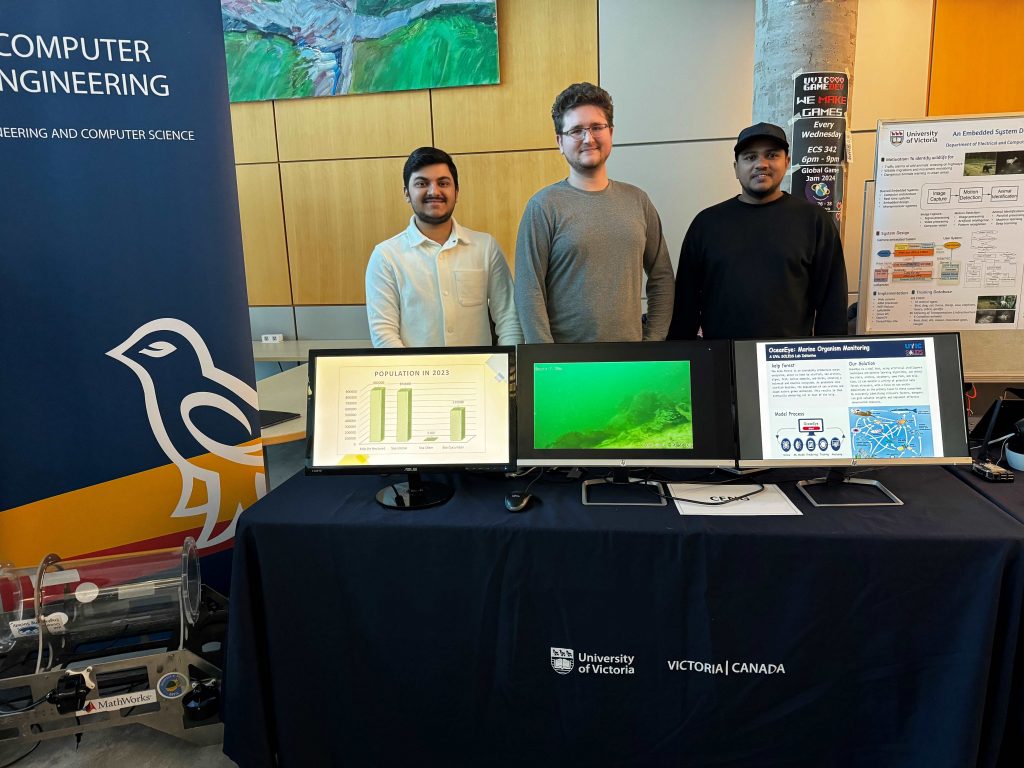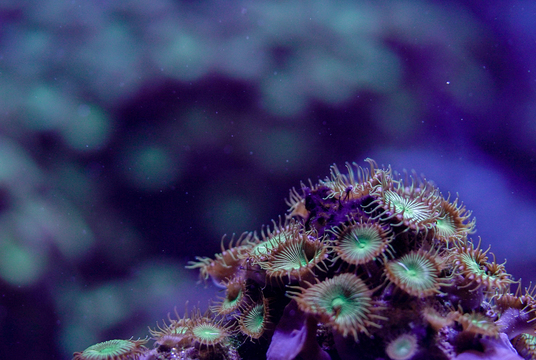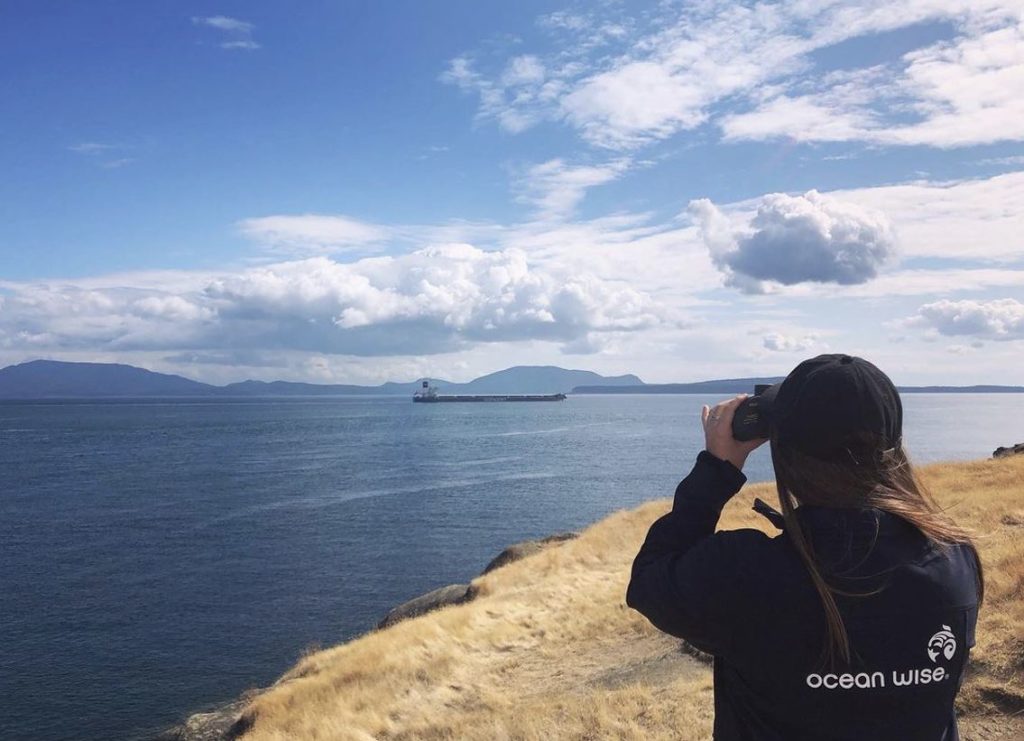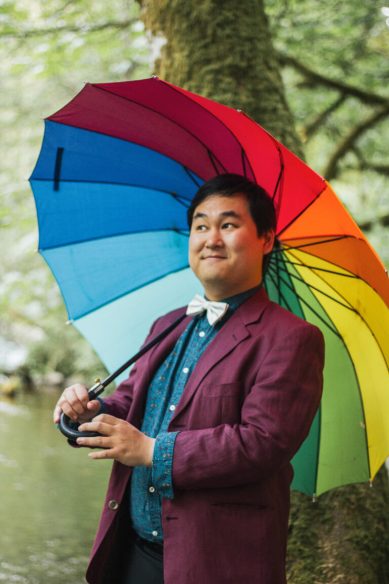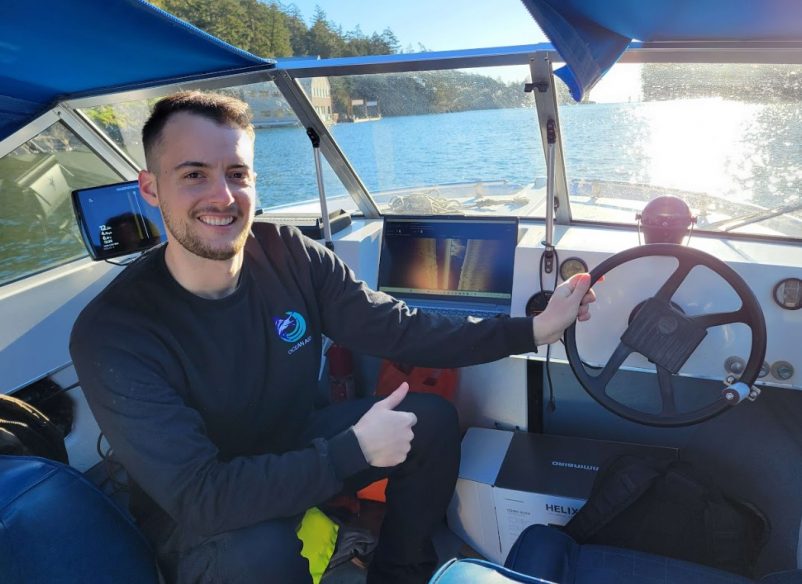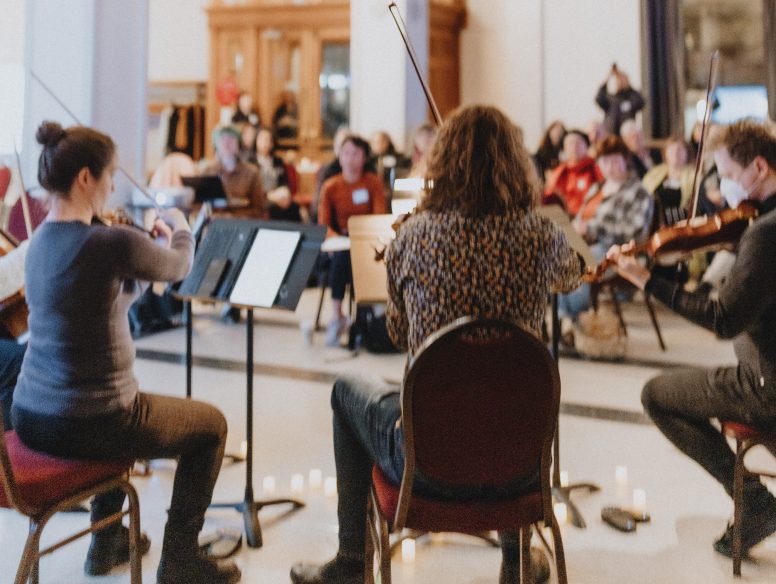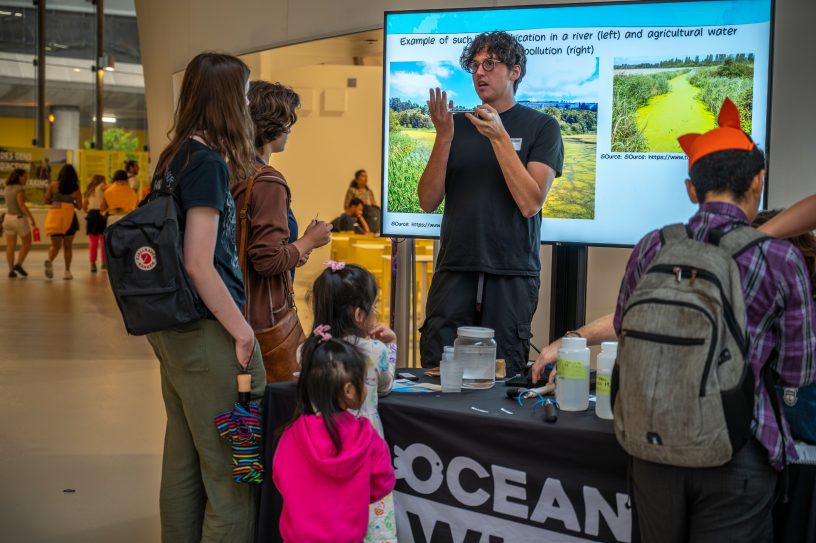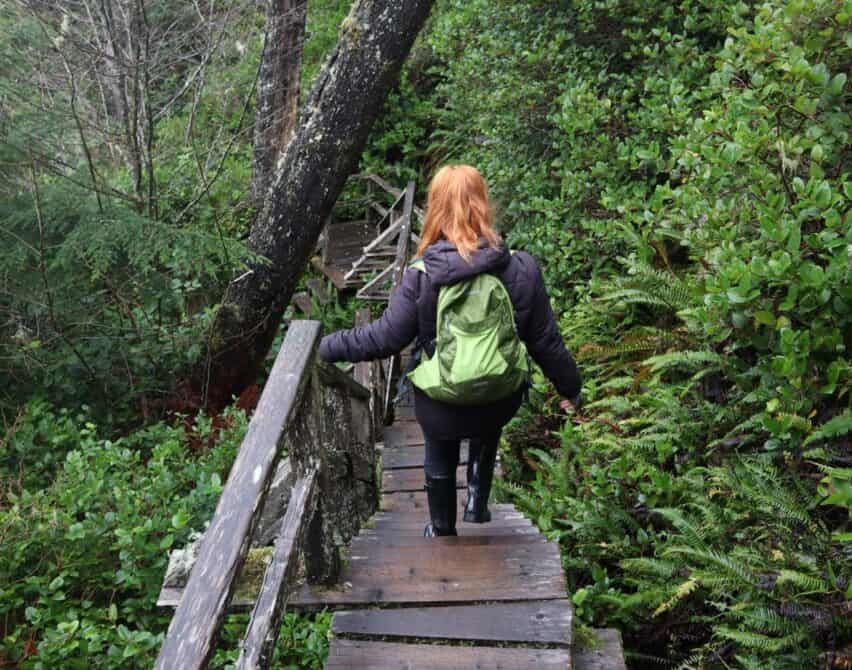
Dealing with Eco-Grief: The Case for Pragmatic Optimism
In 2021, 160 young people (ages 18-30) formed Ocean Wise’s Ocean Bridge program, a national team engaged for eleven months in co-creating and delivering ocean and waterway service projects for their home communities. Ocean Wise Direct Action is an exciting immersive program for in-depth learning and youth engagement with oceanic and aquatic conservation efforts across Canada. This national service-learning program will connect Canadian youth and young professionals with experts in marine and aquatic conservation organizations, empowering them with experiences in direct marine and aquatic conservation initiatives, adventurous opportunities for fieldwork, professional research projects, and educational and outreach programs.
Kara Guloien is a 2021 Ocean Bridge Direct Action Ambassador and a marine conservation researcher working with Ocean Bridge partner: Parks Canada. Kara wrote about her experience feeling loss that many working in conservation may experience regularly but may not actively acknowledge or process due to lack of recognition in society.

Ecological Grief: psychological distress, cognitive dissonance, anxiety, and emotional turmoil as a result of ecological change and/or the climate crisis.
As risks of environmental degradation due to the climate crisis and anthropogenic activity rise, so do the mental and physical health impacts. Youth are more at risk of mental health impacts due to chronic stress and many psychosocial risk factors induced by climate change. These anxieties are experienced alongside feelings of powerlessness, vulnerability, and perceptions of inadequate action from previous generations (Hickman et al., 2021). Overall, these emotions scratch the surface of loss that runs deeper than changes in environment. These losses are due to burdens imposed by the overarching systems of oppression and exploitation, such as colonialism and capitalism, whose mechanisms bear the brunt of fault for our current climate crisis.

Ecological grief comes from many, equally valid, types of losses. It may be expressed following a person’s displacement due to forest fires or flooding. It may also be expressed when a young person decides not to have children because of the perceived future impacts of climate change.
When I think of ecological grief, I remember walking the Juan de Fuca marine trail days after British Columbia experienced a record-breaking heatwave in late June 2021. More specifically, I remember the smell. Imagine a couple derelict dumpsters filled with discarded food waste, marinating in their rotten juices in the summer sun for weeks on end. Now, imagine these dumpsters spread on to every corner of the city. Over a billion marine animals along British Columbia’s coast were estimated to have been cooked to death due to extreme heat. While the news made headlines of these deaths, afterwards, these casualties seemed quickly forgotten and did not result in the action and change needed to address such events in the future. I was devastated. I was frustrated. I was angry.

The climate crisis requires our collective attention. So does climate grief.
The truth is that we have all lost as a result of climate change and many of us are grieving those losses. There are too few spaces that acknowledge or facilitate the expression of such heavy and complex emotions, many choose to numb them. This can be unhealthy in the long-term.
All emotional responses to ecological change are valid and may be processed in many ways. However, it may not be productive to approach the climate crisis (and subsequent losses) with extreme optimism or perpetual doom-and-gloom (Stanley et al., 2021). On one hand, extreme optimism can ease senses of urgency and is dangerously reliant on context. On the other hand, doom-and-gloom can become a self-fulfilling prophecy based on the perception that all efforts are futile and can restrict our ability to see the countless environmental successes happening around us (Kelsey, 2017). Both perspectives may discourage environmental action, so we need a middle ground between extreme optimism and despair, perhaps in the form of pragmatic optimism.

I will say that I do have hope for the future. I have hope in people, hope in meaningful action, and hope that we can put in the work and be successful in environmental conservation. As a natural response to loss, grief deepens our connections with ourselves and those around us. These connections can be motivating, inspiring, and catalytic for meaningful action. In addition to feelings of ecological grief being a sign to take action, it may also act as a sign to rest and replenish with the understanding that conservation work is not a sprint but a marathon.
Call to Action
For those in environmental work, grief and hopelessness are often components of the emotional labour associated in this field. What can be done? What is the solution? Here are some mechanisms that can mediate burnout:
- Expression: Find a group of like-minded people or a safe space for expression to honor and heal from eco-grief related emotions. Validate your feelings. Saving the planet is hard.
- Rest: Take the time to reconnect with nature and yourself. Tend to the body and mind through activities such as meditation, outdoor exercise, and spa-based activities to re-energize.
- Get Creative: Arts based activities (e.g., visual arts, poetry, theatre, dance) provide transformative experiences that can bring people together and engage with those that may not be educated on environmental issues.
- Celebrate the Victories: There is disproportionate reporting on the bad environmental news. Be sure to check in on the good news, too. Scan twitter hashtags like #oceanoptimism, #conservationoptimism, and #earthoptimism to be reminded of the resiliency of our planet.
- Activism: Some say the best way to ease climate anxiety and anger is meaningful action. Engaging in community conservation projects, promoting climate literacy, founding an environmental initiative, or simply committing to smaller lifestyle changes (e.g., swapping out a car ride for a bike ride) can support personal wellbeing in addition to climate health. I listen to podcasts like “How to Save a Planet” on Spotify for small-change inspiration.
References
Hickman, C., Marks, E., Pihjala P., Clayton, S., Lewandowski, R., Mayall, E., Wray, B., Mellor, C., Susteren, L. 2021. Young people’s voices on climate anxiety, government betrayal and moral injury: a global phenomenon.
Kelsey,E. 2016. The rise of ocean optimism. Hakai Magazine The Rise of Ocean Optimism | Hakai Magazine
Stanley, S., Hogg, T., Leviston, Z., Walker, I. 2021. From anger to action: differential impacts of eco-anxiety, eco-depression, and eco-anger on climate action and wellbeing. The Journal of Climate Change and Health 1:
What is Ocean Bridge?
Ocean Bridge brings together young Canadians with a wide range of backgrounds and experiences who are passionate about making a difference in their communities through the lens of oceans and waterway conservation. These Ocean Bridge Ambassadors from all across Canada work together, receive funding and learn from experts in marine conservation and education through an online platform and in-person learning journeys to develop service projects related to ocean health and ocean literacy in communities across the country. Ocean Bridge is an Ocean Wise initiative funded by the Government of Canada through the Canada Service Corps.
Ocean Bridge Direct Action is an exciting immersive program for in-depth learning and youth engagement with oceanic and aquatic conservation efforts across Canada. This national service-learning program will connect Canadian youth and young professionals with experts in marine and aquatic conservation organizations, empowering them with experiences in direct marine and aquatic conservation initiatives, adventurous opportunities for fieldwork, professional research projects, and educational and outreach programs.
Canada Service Corps
Canada Service Corps is designed to generate a culture of service among young Canadians; concrete results for communities; personal growth through participation in a diverse team of peers; and lasting impacts on participants. Visit www.canada.ca/CanadaServiceCorps to learn more and how to get involved in the way that works best for you.
Posted March 9, 2022 by Ocean Wise
